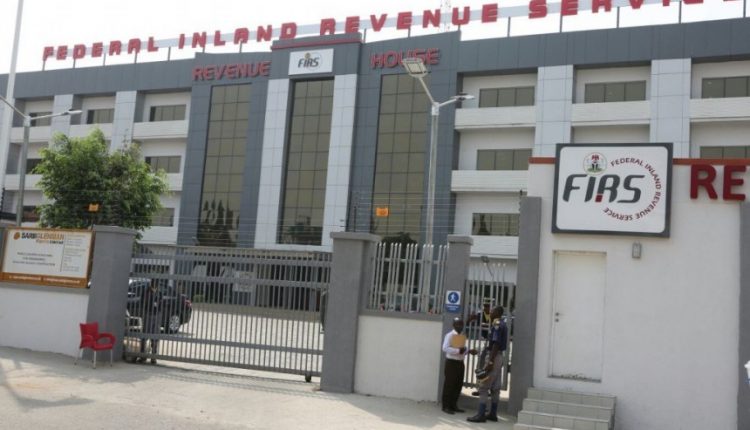A few days ago, the governor of Anambra State, Prof. Charles Soludo assented into law, two new laws concerning local government administration, namely the Anambra State Economic Planning and Development law 2024 and the Anambra State Local Government Administration Law, 2024.
Public outcry and condemnation greeted the action of the governor from across the country, with many Nigerians viewing the local government administration law in particular, as a violation of the financial autonomy granted to the 774 local government area councils in Nigeria by the Supreme Court, the highest court of law in the country.
The reaction of the public prompted Governor Soludo to put up an opinion article in defence of the two legislations, which seemed obnoxious in the eyes of the Nigerian public. The article widely published in both the print and online media was titled, “Nigeria’s Evolving Federalism and Search for Sustainable Local Government Administration by Chukwuma Charles Soludo.”
As an Anambra State indigene, I felt letdown by the puerile arguments put forward by our governor while trying to justify the two new local governance laws in the state, which for all intents and purposes, contradicted the judgement of the Supreme Court, granting financial autonomy to all the councils in the country.
Sincerely, I would not have bothered myself commenting on Soludo’s article, if he was just expressing his opinion on how the local government system should be run in the country. After all, section 39 of the 1999 Constitution of Nigeria entitles every citizen “the freedom of expression, including freedom to hold opinions and to receive and impart ideas and info without interference.”
Moreover, the concept of “free marketplace of ideas” first introduced by Justice Oliver Wendell Holmes, holds that from the competition of ideas in free, transparent and public discourse, the truth will emerge. But, along the line, I remembered the popular statement of an American politician, diplomat and social scientist, Daniel Patrick Moynihan (May 16, 1927-March 26, 2003). Quoting Moynihan: “You are entitled to your own opinion. But you are not entitled to your own facts.”
On this basis, I resolved, therefore, to interrogate the facts presented by Governor Soludo to ascertain the extent of their validity within the context of the autonomy granted to the councils by the Supreme Court and the apparently contradictory legislations, particularly the new local government administration law. Before I go further, let me crave the indulgence of the reading public to sequentially recount as concisely as possible, the events that heralded the article by Governor Soludo.
In May 2024, the Federal Government through the Attorney General and Minister for Justice, Lateef Fagbemi (SAN), approached the Supreme Court with a suit, seeking to compel governors of the 36 states of the federation to grant autonomy to the local governments in their domain. The states through their AttorneyGenerals filed a preliminary objection, challenging the jurisdiction of the Supreme Court to entertain the suit.
Prior to the suit, the local governments were tied to the apron strings of the governors and many of them were administered by handpicked officials of the state government, instead of democratically elected officials as guaranteed by section 7 of the 1999 Constitution of the Federal Republic of Nigeria (as amended).
Incidentally, Anambra State was among the serial defaulters, having failed to conduct local government election for over 14 years before the intervention of the Federal Government. In a landmark judgment delivered last July, the Supreme Court ruled in favour of the Federal Government, affirming the autonomy of the 774 local government areas in Nigeria.
The apex court ruled that the Federal Government should henceforth pay federal allocations directly to democratically elected councils. Incidentally, Governor Soludo who was among the first responders to the judgement, told State House correspondents in Abuja that the governors were going to review the judgement. He later recanted, saying the judgement was great and final.
But in what looked like throwing a spanner in the works of local government autonomy in Anambra State, the governor quickly initiated a bill before the House of Assembly, compelling the local governments in the state to remit a portion of their federal allocations into a consolidated account controlled by the state government.
The All Progressive Grand Alliance (APGA) dominated House of Assembly, passed the bill in spite of opposition mounted against it by members of the Labour Party (LP) caucus, who insisted that such a law will allow the Anambra State government to partake in the sharing of the funds meant for the 21 councils in the state. The governor swiftly signed the bill
Soludo should quickly initiate a process for the repeal of the laws as doing otherwise could trigger speculations that he wants to maintain his access to council funds
into law in spite of warnings from civil society organisations that he should not do so. His assent to the law attracted widespread condemnation from across the country, hence his opinion article in defense of his so called “progressive laws,” which are retrogressive in the eyes of the public.
After a careful perusal of Soludo’s article, I found nothing new. It was a regurgitation of the usual abracadabra by governors to hoodwink undiscerning Nigerians into believing that their interest in the local government system is about true federalism. Let nobody be deceived, it is not. The essence of true federalism is devolution of political power.
Devolution of political power encourages grassroots development, which local government autonomy symbolizes. In fact, Soludo was hundred per cent correct when he said in his opinion article that in true federations, with the exception of perhaps Brazil and a few others, the local government is not recognised in the constitution as a federating unit.
Even in the Nigerian Constitution, the local government is not recognised as a federating unit. But the same Nigerian Constitution never said that the local government is an appendage of the state government. The recent judgement of the Supreme Court did not say that the local government is a federating unit in Nigeria. So, bringing up this issue now is purely diversionary.
Section 7 of the 1999 Constitution of the Federal Republic of Nigeria (as amended) recognised the local government as the third tier of government in Nigeria. This is what the Supreme Court re-affirmed. The constitution clearly outlined the powers and functions of the local government, likewise every other tier of government. Until the constitution is amended, the governors should respect the autonomy of the councils.
They should allow them to get the maximum benefits of the revenue accruing to them. This is the only way we can stabilise the local economy, achieve financial inclusion, encourage rural development, stem rural-urban migration, and tackle unemployment, thereby reducing insecurity in the country.
The same section 7 of the Constitution empowers the House of Assembly to make laws for the effective administration of the local governments and not to encroach on local government funds, which is what the new local government administration law in Anambra State sets out to do, in utter disregard of the pronouncement made by the Supreme Court.
I don’t know who told Soludo that there would be chaos if the local governments are granted absolute autonomy, since the constitution did not grant them absolute autonomy. The local government system in Nigeria is one of the most organised in the world. Having undergone several reforms, it is well structured.
Besides, the political structure, comprising of chairmen, councilors and supervisory councilors, the councils have their own bureaucracy, consisting of heads of personnel, treasurer, auditors and supporting staff, just the way the states have governors, Houses of Assembly, commissioners, the Head of Service, AccountantGeneral and Auditor General, among others.
If not for the corruption induced on the councils from above, especially the state level, they are capable of meeting their obligations to workers, pensioners, teachers and counterpart funding of Universal Basic Education and Primary Healthcare. Former governors are standing trial in court today for diverting funds meant for meeting local government obligations to personal use while they were in office.
As a self-professed “federalist,” Soludo ought to have been aware that in countries like United States of America where true federalism thrives, the counties organise their own security, conduct elections for themselves and manage their affairs, largely independent of the states.
So, any governor, who is sincere about the evolution of true federalism in Nigeria, should allow the local governments in his state to enjoy the autonomy granted to them by the constitution, which the Supreme Court re-affirmed.
The Supreme Court said in black and white that the money due to the local governments should go to them directly. The judgement of the Supreme Court is final. It is not subject to appeal. It is now part of Nigerian law. It does not need any legislation to give it life if the apex court made no order to that effect.
Let me therefore enjoin Soludo to emulate his colleagues, such as his Akwa Ibom State counterpart, Umo Eno, who assured the councils in his state that he would respect their autonomy. Governor Soludo should quickly initiate a process for the repeal of the laws as doing otherwise could trigger speculations that he wants to maintain his access to council funds, to use the money to fund his re-election in November 2025.
Please follow and like us:

 2 hours ago
8
2 hours ago
8









 English (US) ·
English (US) ·